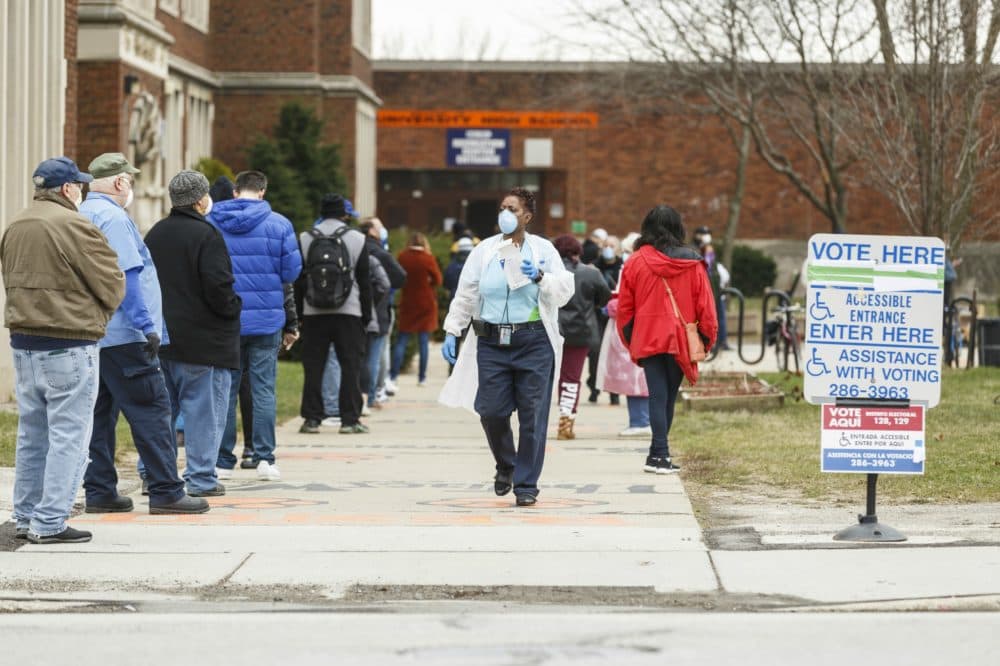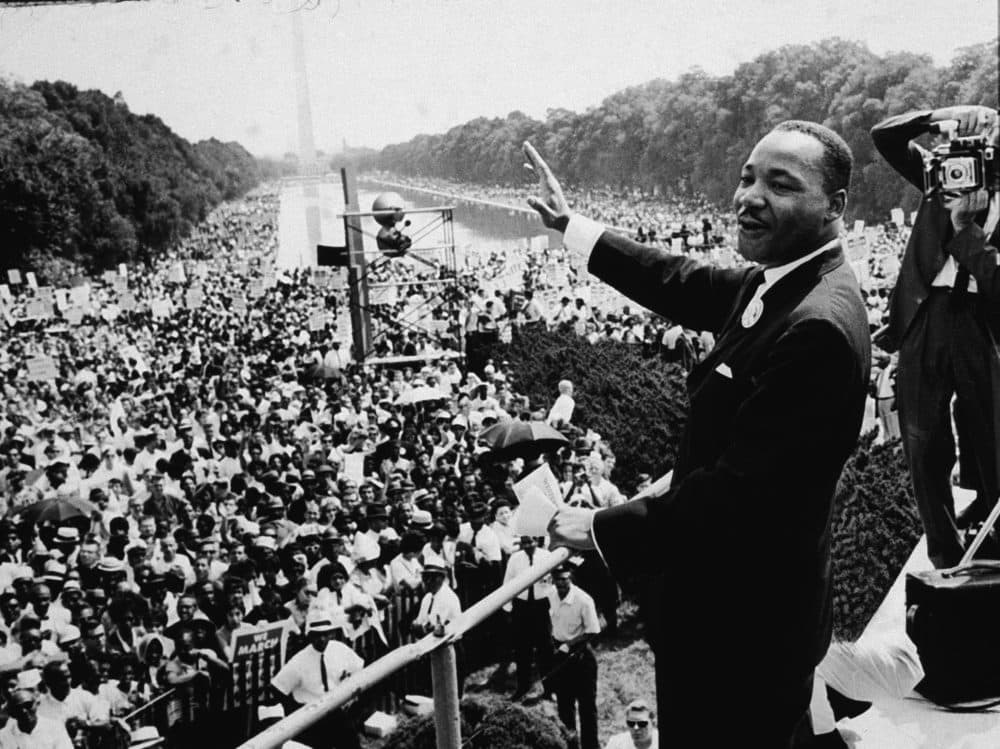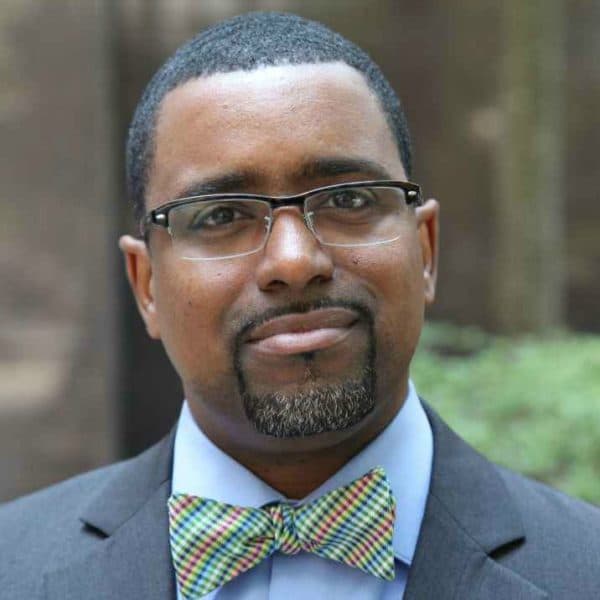Advertisement
Commentary
Voting Rights Have Never Been Equal. These 6 Reforms Would Help

Last week marked 57 years since Rev. Dr. Martin Luther King Jr., A. Philip Randolph, Bayard Rustin, Daisy Bates, Anna Hedgeman and John Lewis, and many other civil rights leaders, organized some 250,000 demonstrators under the banner of "jobs and freedom." In front of the Lincoln Memorial, Dr. King delivered his historic "I Have a Dream" speech.
The march is credited with moving the President Lyndon B. Johnson’s administration to pass the Civil Rights Act of 1964 which, along with making discrimination illegal, called for voter registration requirements to be applied evenly. A year later, Johnson signed the landmark Voting Rights Act of 1965. It took a struggle but King’s dream, it seemed, was starting to materialize.
More than five decades later, however, we’re not so much living the dream as we are stuck in a recurring nightmare. Whether it’s a poll tax in Florida or deliberate sabotage of the U.S. Postal Service, it’s hard to believe we’re seeing our right to participate in the electoral process undermined so blatantly, and with a playbook that’s so familiar.
One thing we could not have anticipated was a pandemic of this magnitude, and the ways in which the government would exploit a global health crisis to suppress Black voters.
It started in Wisconsin when, in a cloud of discord between the state’s legislature and governor, predominantly poor and Black voters were forced to choose between risking their health to vote or surrendering this most fundamental birthright.

But Wisconsin was just the beginning. Recent reports indicate more than a half-million mail-in ballots were rejected during primaries across 23 states this year, with a quarter of those rejected ballots coming from key battleground states. The lack of a nationalized mail-in voting system has resulted in confusion, uneven enforcement of the rules, mismanaged processes, missed delivery deadlines, and ultimately, disenfranchised voters.
The U.S. Postal Service recently warned 46 states and Washington D.C. that it could not guarantee meeting on-time delivery of ballots cast for the November election. That might be due in part to Postmaster General Louis DeJoy’s decision to remove mailboxes and sorting machines from post offices around the country — including here in Boston — and his decision to cut overtime for the Postal Service’s disproportionately Black workforce.
It’s just the latest chapter in a long, repetitive story, in which U.S. elections continue to have roadblocks that disenfranchise people of color, people with disabilities and low-income communities. Voter ID laws, voter purges and poll closures have long been used as strategies to alter elections. COVID-19 has just made it a little easier.
Advertisement
Voter ID laws, voter purges and poll closures have long been used as strategies to alter elections. COVID-19 has just made it a little easier.
On average, Black voters wait 45% longer to vote than white voters, while Latinx voters wait 46% longer. As we head into the 2020 election, it’s unlikely the Trump administration will do anything substantive to alleviate this. If anything, the administration will likely make sure it gets worse. Black voters know this, which might be why only 35% of them are confident this year’s elections will be fair and accurate.
But state governments, including here in Massachusetts, have the power to restore that confidence. If we truly want to live up to the values of our democratic system, here are six fixes that can happen right now, here and elsewhere:
*Enact no-excuse absentee voting and/or vote-by-mail. In the midst of a global pandemic, we need to increase access to the ballot and ensure people can stay safe and healthy (Massachusetts’ temporary provision that allows for no-excuse absentee voting expires at the end of this year.)
*Pass Election Day registration, which has a direct correlation to increased participation in historically disenfranchised communities. For a state that touts its “progressive” values, it’s astounding that Massachusetts doesn't have this already.
*Universal enfranchisement for people who are incarcerated (Massachusetts had full enfranchisement until 2000), and eliminating felony disenfranchisement laws. Massachusetts disenfranchises people who are incarcerated serving a felony sentence. Once they wrap their sentence, they are able to vote once they re-register.
*Eliminate photo identification requirements, and to the extent photo identification is required, provide free photo identifications for all registered voters. Currently, Massachusetts only requires photo identification for first-time voters who registered to vote online or through the mail. When a voter may be required to show identification, the person can provide a utility bill, a bank statement or other official document that includes the voter's name and address.
*Create universal early voting and a federal holiday to allow time off to vote.
*Pre-register 16- and 17-year-olds (Massachusetts and 20 other states already do this), and automatic voter registration at the age of 18.
There is much about our times that Dr. King may not have foreseen — the election of a Black president, a Black woman nominated to be the vice president, a worldwide pandemic, nationwide racial unrest — but nothing that’s happened since his death would have changed his demands one bit.
We echo those demands today, with every vote and every ballot cast. We will not be satisfied until “justice rolls down like waters, and righteousness like a mighty stream.”
Yet again, we demand America guarantees our unalienable rights of life, liberty and the pursuit of happiness — and our right to vote.


